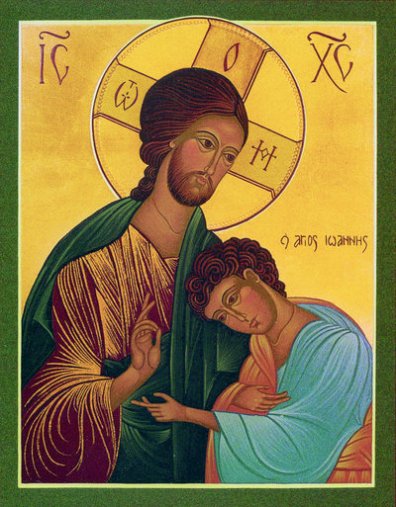St. Stephen’s is an Episcopal Church, which is part of the Anglican Communion. As Anglicans, our style of Christian spirituality and temperament is unique. Anglican spirituality is best outlines in the writings of John Westerhoff:
Anglican Spirituality
Liturgical/Biblical: Anglican/Episcopal spirituality is rooted in communal daily prayer (Morning Prayer, Noonday Prayers, Evening Prayer, Compline) as laid out in The Book of Common Prayer. Thus, our way of praying tends to have more formality and structure and is shaped by the Scriptures, the divine reading of Scripture and the prayerful meditation on the psalms.
Communal: For Episcopalians, communal prayer comes before and shapes personal prayer. Prayer is seen as an activity that connects us to God, to each other, to include the living to the dead. Communal prayer is a part of daily, weekly and yearly rhythms and both surrounds and informs community gatherings and meetings in which decisions are made.
Sacramental: Episcopalians see the world, itself, as sacramental, that is, capable of mediating the grace of God. Anglicans also emphasize the two primary sacraments of Baptism and Eucharist as well as offer the other sacramental rites of confirmation, holy matrimony, reconciliation, unction, and ordination.
Eucharistic (A Life Centered in the Holy Eucharist): Everything we do at St. Stephen’s is centered squarely in what we do at the Altar. All our ministries and outreach begin and emanate out from our celebration of the Holy Eucharist. We at St. Stephen’s believe in the Real Presence of Jesus Christ in the Bread and Wine of the Eucharist.
Incarnational: Episcopalians emphasize the incarnation, God’s entry into human life and history. Accordingly, we have an earthy spirituality that affirms the goodness of life and the created world and believes that the extraordinary is to be found in the ordinary.
Mystical: Episcopalians experience union with God as happening over time, bit by bit through a journey aided by spiritual discipline and prayer. Such a belief is consistent with the description of spiritual progress found in the mystics.
Anglican
Comprehensive: We believe the truth is to be found in the tension between counter-opposites. We affirm both the sacred and secular, both the material and the non-material, both the mind and the heart, both the transcendence and the intimate closeness of God.
Ambiguous: We are not “black and white” thinkers, but instead affirm the ambiguity of experience and the value of learning to tolerate and embrace complexity and ambiguity in many aspects of human life and in the spiritual journey.
Open-minded: We are people of a questioning faith. We search for wisdom in many places and encourage people to listen to each other and to bring their honest questions to their spiritual life.
Intuitive: We are at home in the world of image, symbol, myth, ritual, and the arts. Very few Anglicans write systematic theologies. Instead we are writers, poets, pastors, and musicians.
Aesthetic: We believe that beauty is the doorway to truth and goodness and that beauty is a doorway to God.
Moderate: We avoid extremes, believing that a godly life is one that is disciplined, balanced and temperate.
Naturalistic: We have a reverence for nature and its rhythms. Anglicans believe in working to protect the natural world and its creatures.
Liturgical
The Beauty and Reverence of Worship: We worship God in the beauty of holiness. We use candles, water, color, banners, music, flowers, incense (at our Wednesday evening Mass), etc. as an expression of our piety. Such ceremonial is done to honor God, and it is understood to be prayer made visible.
The Sacramental Life of Stewardship and Discipleship: As Anglican Christians we believe that sacraments are outward and visible signs of God’s inward grace. In our very lives we too are meant to be Sacraments to God. We seek to live our lives faithfully to God’s plan for us, being good stewards of everything God has entrusted to us already, and visible signs in this world of God’s love and grace.
Justice and the Care of All People: Our devotion and worship is useless if we are not engaged with the struggles of our world. Because of our high view of the dignity and worth of every human being, and because God and God’s love resides in every person, it is imperative that we seek wholeness for the entire creation. The beauty of holiness must lead to a passion for justice and pastoral care.

Every Sunday we celebrate the Resurrection of Jesus Christ: the ultimate triumph of all that is good, true, and beautiful. We celebrate with joy the relentless gift of newness, and the invitation to transformation that stands even in our midst.
Our celebration of the Eucharist is rooted in ancient tradition, as we do as Christians have done for centuries. Our praise of God engages all the senses: with chant, music, ritual, and incense we lift our hearts and minds from the stresses and strains of modern living. For we believe that in our worship we glimpse heaven itself – a world so much bigger and greater than the present moment, and a vision of hope.
Although we embrace ancient traditions our outlook is fresh and inclusive; our community diverse. Our commitment is to translating the wisdom and beauty of the past to the needs and hunger of the present. The best way to learn about our worship is to experience it: we invite you to join us.
High View of the Sacraments
We have a high view of the Sacraments and their ability to heal our broken world. We affirm Baptism as our true birth in Jesus Christ, and we venerate Christ in the Body and Blood of the Eucharist.
Eucharistic: A Life Centered in the Holy Eucharist
Everything we do at St. Stephen’s is centered squarely in what we do at the Altar. All our ministries and outreach begin and emanate out from our celebration of the Holy Eucharist.
High View of the Incarnation
We have a high view of the Incarnation, or the Word-Made-Flesh among us in Jesus Christ. We believe that every person bears the image of Christ, and that every person is to be honored for their inherent dignity and worth. Such belief calls us to reach out to those who are hurting in our world.
The Holy Scriptures
We cherish the Bible, especially the Gospels which point us to Jesus. We believe that the Bible must be read prayerfully and critically. We read the Bible to help us understand God more fully, but we also understand that the Bible has been written by humanity, and therefore it is not without error.
The Beauty and Reverence of Worship
We worship God in the beauty of holiness. We use incense, oil, candles, water, color, banners, music, flowers, etc. as an expression of our piety. Such ceremonial is done to honor our Lord, and it is understood to be prayer made visible.
The Sacramental Life of Stewardship and Discipleship
We seek to live our lives faithfully to God’s plan for us, being good stewards of everything he has entrusted to us already.
Justice and the Care of All People
Our devotion and worship is useless if we are not engaged with the struggles of our world. Because of our high view of the dignity and worth of every human being, and because Christ resides in every person, it is imperative that we seek wholeness for the entire creation. The beauty of holiness must lead to a passion for justice and pastoral care.
The liturgy at Saint Stephen’s is according to the use of the Book of Common Prayer of the Episcopal Church (1979). This treasure of the great Anglican Prayer Book tradition allows us to celebrate the sacraments and mark the times and seasons according to the ancient patterns. At our services we both use traditional language rites and still make full use of the authorized materials of the Church.
Worship is central to our life and mission at St. Stephen’s.
The purpose of worship is not to entertain, edify, educate, inspire, motivate, or instruct; worship can and often does accomplish these things, but its primary purpose is to render to God the praise that is his due. Along the way, we may find our spirits lifted into God’s presence so that we receive a foretaste of heaven. By worshiping regularly, we grow spiritually to become more and more the persons that God has created us to be. But, again, the point of worship in our tradition is not what we get out of it, but what we give.
Worship is liturgical; that is, it follows an ordered and predictable pattern. While our services may seem confusing to someone attending for the first time, they quickly become comfortably familiar to those attending Sunday by Sunday – because most Sundays the same things are said and done in much the same sequence. This highly structured order of service is not stifling but liberating. Not having to reinvent the wheel each week, we gain the freedom to concentrate on worshiping God.
Worship is sacramental, in two senses of the word. First, it gives a central place to the Sacraments of the Church, especially the Holy Eucharist, as the appointed means by which we receive God’s grace and strength. Second, because we are not pure intellects or disembodied spirits, worship engages us in the fullness of our humanity, body and soul, by visible signs and symbols that appeal to our sight, hearing, smell, touch, and taste. Our worship is thus richly sensual, making use of music, incense (only on Wednesday nights), candles, vestments, sacred images, and ceremonial pageantry to lift our hearts and minds to the unseen God.
Finally, worship is corporate, in that it is the activity of a gathered assembly. God did not create us to be isolated individuals. As human beings, we realize the fullness of our identity in relationship with others. The liturgy thus brings us together as members of a community. Worshiping together, we grow in the ability to forgive one another as God has forgiven us, and to love our neighbor as ourselves.






